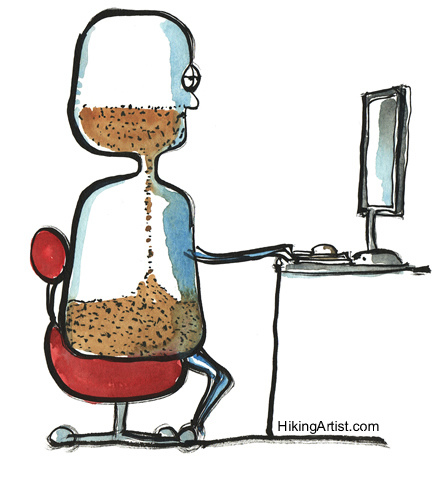
The Ghost behind the Writer
 For the tenth installment of author’s interviews, we have chosen to present you with a Ghost. AS we all know, ghostwriters might be heard and read, but are never seen, so here is one who has agreed to present us with his thoughts.
For the tenth installment of author’s interviews, we have chosen to present you with a Ghost. AS we all know, ghostwriters might be heard and read, but are never seen, so here is one who has agreed to present us with his thoughts.
Electric Ghosts
by Andrew Crofts
Ghostwriters have always shadowed the publishing world wherever it has moved to, and the arrival of electronic publishing will be no exception. For many centuries we sat as scribes in the marketplaces of the world, writing letters by hand for those who didn’t have the literacy skills to do it for themselves. With the coming of the printing presses we prepared manuscripts to be turned by publishers into the billions of books that have since become part of everyone’s lives. But now we don’t necessarily need the business people of the publishing world to take our babies to market. Just as we learned to write and to read and to print, we have now learned how to publish; first with the self-publishing of printed books and now on-line.
But just because someone wants to write a book, (either electronic or printed), or has a story to tell, doesn’t mean that they have the writing skills to make it into a good read – and that is where we ghosts move back in. We can help with the writing just as designers can help with the covers and editors can help to tidy everything up at the end, giving that final polish. There might then be a need for marketing or publicity experts – the publishers had a system for all that and no doubt we will learn to do the same in time in the freelance marketplace.
In the interests of testing the market and working out what it is I am talking about, I have produced my first electronic book, (after publishing around 80 in the traditional manner). “The Fabulous Dreams of Maggie de Beer” is the fictional memoir of a young girl who leaves home in 1970 to become famous and thirty years later is swept to infamy on a tide of reality television, celebrity culture and media exploitation. There is no reason why more ghosted books (fiction and non-fiction) shouldn’t go electric in the coming years.
To be a ghost you simply have to find someone with a story that people are going to want to buy and read, and then write it for them. You need to spend time with them listening to them, taping them, getting their voice into your head, and then you head back to the joyous seclusion of your garret to write. If you can sell the resulting work to a traditional publisher that is great, (even better if the publisher has come to you with it in the first place, asking for your help), but if that doesn’t happen then a business arrangement needs to be worked out for the author to hire you to produce self published copies or to post it online with one of the electronic publishers such as Smashwords.
Ghostwriting can provide a good living for an established and prolific writer, (if a book sells a million copies and you are splitting the royalties down the middle it is not hard to see the earning potential). I have written a book, (“Ghostwriting”, published by A&C Black in the traditional print way), which goes into a great deal of detail as to how to become a ghost or how to hire one, (and was extensively quoted by Robert Harris in his excellent thriller “The Ghost”, since turned into a film by Roman Polanski, with Ewan McGregor putting an acceptably glamorous face on our normally invisible profession).
Making a living as a professional writer is as hard as making one as an artist, a musician, a photographer or most other creative professions, (probably less hard than acting, to be honest), and ghosting is as valuable a potential string to a professional writer’s bow as journalism or teaching or any of the other avenues we need to explore to survive. Electronic publishing is a new way to market just as potentially useful as the printing press was a quarter of a millennium ago and we need to embrace it joyfully.